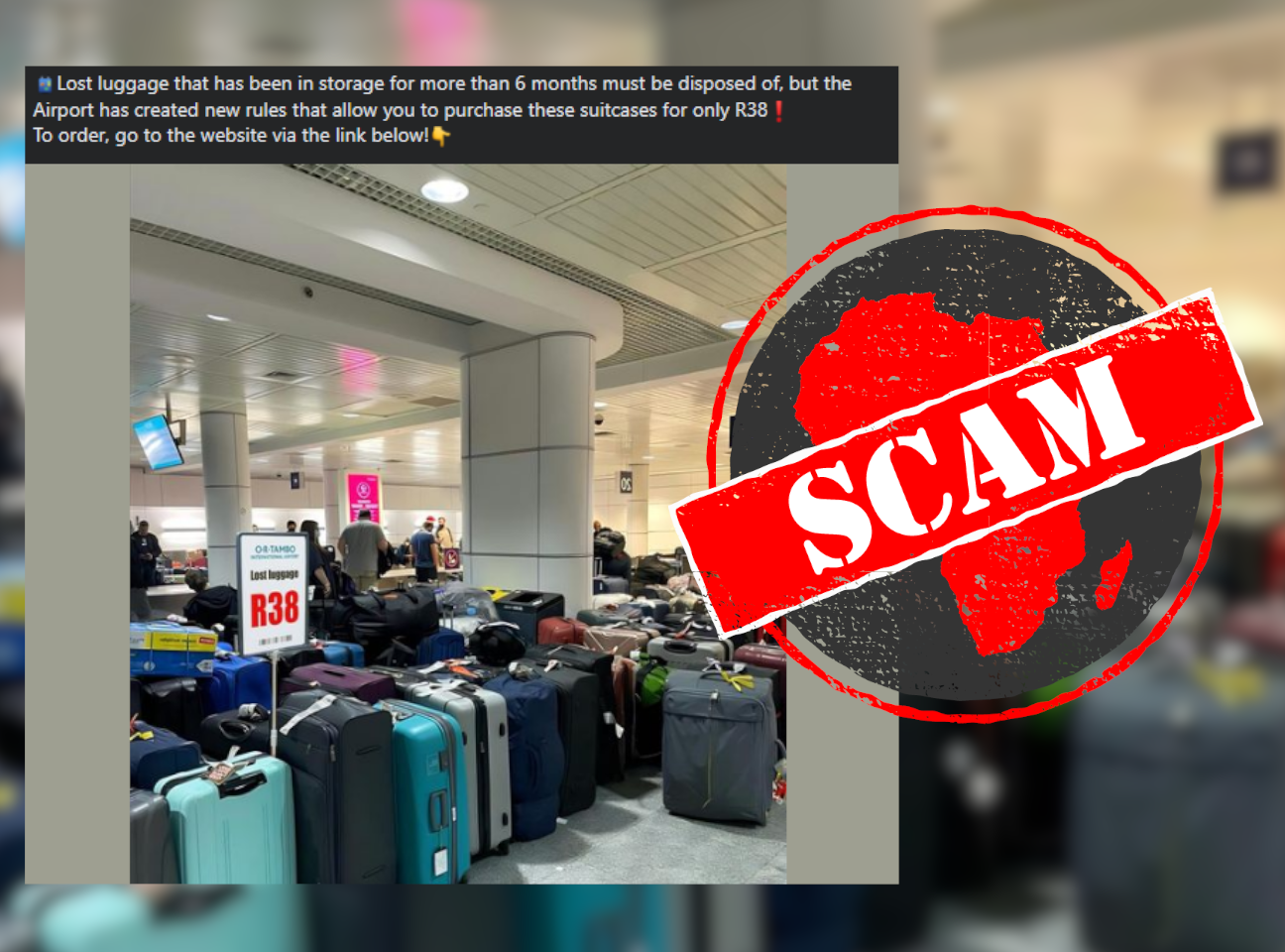IN SHORT: A Facebook account impersonating OR Tambo International Airport appears to be selling baggage that has not been claimed by passengers. But the South African airport says it is a scam.
A Facebook post from an account called Tambo Airport claims it is selling unclaimed luggage for R38 a bag (about US$2).
OR Tambo International Airport is located in Johannesburg in South Africa's Gauteng province. It is managed by the Airports Company South Africa and has over a million local and international flight arrivals each year.
According to the post, the airport would normally dispose of baggage that has not been claimed for six months, but is now selling it off for R38 a suitcase.
The account has also shared a link where payments can be made for each lost or unclaimed suitcase.
The post has over 520 comments and has been reposted over 30 times.
But is one of Africa’s busiest airports really selling unclaimed luggage? We checked.

Misleading comments
The post has received positive comments from several users, who claim to have received the luggage they’ve ordered. They’ve shared images of the items, such as laptops, “expensive handbags” and even money.
At first glance, these comments may seem legitimate. However, Africa Check found that the same images had been posted by other users in the comments of similar posts from accounts that appear to be those of other international airports.
For example, the image posted by the Facebook user claiming to have found expensive handbags is the same as one in a comment on a post from an account claiming to be Brussels Airport, also claiming to be selling luggage.
The image from the user claiming to have found a laptop was also posted in a comment on a post from an account claiming to belong to an airport in Germany.
OR Tambo says it’s a scam
In November 2023, the official X account for OR Tambo International Airport warned passengers about the baggage scam.
In January 2024, the airport posted a warning on Facebook about these luggage sale scams, reminding social media users to verify any information through its website.
A long-running scam
This is not a new scam. In December 2023, a fake account with the username OR Tambo Airport made the same claim in a Facebook post.
OR Tambo is not the only international airport to have issued warnings.
Several airports have issued warnings about Facebook accounts using their names for the same scam. These include New Zealand’s Wellington International Airport, Denver International Airport in the US, and Dublin Airport in Ireland’s capital city.
Safe browsing practices for social media
Fake accounts may have a username similar to the airport's, but the URL – the web address that appears in the search bar of your internet browser – will have a different name.
For example, the URLs of some of the fake pages impersonating OR Tambo International Airport include “Facebook.com/autoelectronicmorelos” and “.facebook.com/armazemdodocesap”, while the URL of the official OR Tambo International Airport page is “facebook.com/ortambointernational”.
Always check that the URL matches the username on the page to make sure you are not being tricked.
Africa Check’s guide to spotting and avoiding scams on Facebook is also a useful resource.
Republish our content for free
For publishers: what to do if your post is rated false
A fact-checker has rated your Facebook or Instagram post as “false”, “altered”, “partly false” or “missing context”. This could have serious consequences. What do you do?
Click on our guide for the steps you should follow.
Publishers guideAfrica Check teams up with Facebook
Africa Check is a partner in Meta's third-party fact-checking programme to help stop the spread of false information on social media.
The content we rate as “false” will be downgraded on Facebook and Instagram. This means fewer people will see it.
You can also help identify false information on Facebook. This guide explains how.


Add new comment